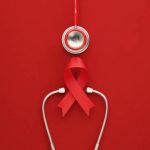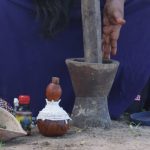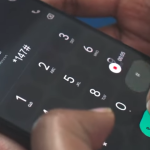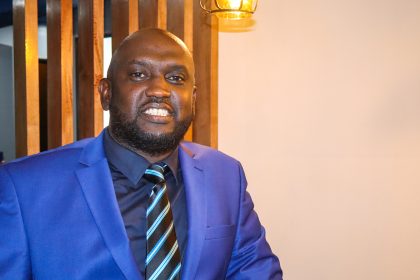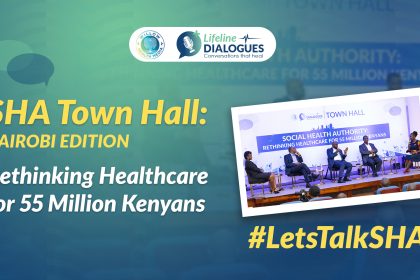Naming a healthcare scheme after yourself can be a double-edged sword. Here is why President Ruto avoided ‘RutoCare’…
President William Ruto’s government is still on a mission to register millions of Kenyans into the new Social Health Authority (SHA) programme, an ambitious initiative aimed at providing affordable healthcare for all, without the heavy financial burden that has long plagued citizens.
This move officially ended the era of the National Hospital Insurance Fund (NHIF), a system that has been in place since 1966 but faced widespread criticism for being discriminatory and ineffective. What started as a fancy idea in Ruto’s Bottom-Up Economic Transformation Agenda (BETA) is now taking shape as a transformative healthcare solution that, if successful, could immortalize his legacy in the hearts of Kenyans.
President Ruto oozing confidence in December last year said “the scale, boldness, and ambition of Taifa Care are unprecedented, and we are confident that the challenges that initially arose as part of this program have now been overcome.” But the SHA programme, however, has been facing headwinds in its implementation, but if it revolutionizes healthcare access, has the potential to boost his political clout in years to come.
Indeed, Presidents and politicians have a penchant for rebranding healthcare schemes in their honour, a global trend that is not new, nor unique to Kenya. Globally, one of the most iconic examples is “Obamacare,” the Affordable Care Act (ACA) signed into law by President Barack Obama in 2010. It marked the most significant overhaul of the U.S. healthcare system since the creation of Medicare and Medicaid in 1965, much like the SHA Act, passed by Kenya’s 13th Parliament and signed into law by Ruto. Whether it will reshape Kenya’s healthcare landscape, only time will tell.
What is not in doubt is that the political climate did not favour President Ruto to rename the SHA scheme after himself. Something like ‘RutoCare’ in like with “Obamacare” in President Barack Obama’s US of A.
President Daniel Moi or “Mzee Nyayo,” however, lived in a different era and while experimenting with Universal Health Care (UHC), expanded access by constructing “Nyayo Wards” in existing hospitals, primarily to serve expectant mothers, and leaving an indelible mark by naming hospital wards after himself.
According to the Presidential Library and Museum Exhibition, a publication on Kenya’s former presidents, “Moi’s pet project in the 1980s was the expansion of health services, with the massive construction of Nyayo Wards in most district hospitals.” Despite challenges in health financing and expenditure, Moi successfully mobilized funds through Harambees—community fundraisers—to support the construction of these facilities, supplementing government contributions.
In contrast, Moi’s successor, Mwai Kibaki, left little in terms of a personal legacy in healthcare, as he wasn’t known for aligning himself with public projects. However, he is often criticized for his refusal to sign the National Social Health Insurance Bill into law in 2004—a piece of legislation that could have guaranteed UHC for Kenyans years earlier.
President Uhuru Kenyatta, who succeeded Kibaki, was also not keen on attaching his name to public programmes. Even after allowing his spouse, First Lady Margaret Kenyatta, to spearhead the Linda Mama programmes, which aimed to ensure safe deliveries across the country, he maintained a low profile in this regard.
When the programme was launched in 2013, abolishing delivery fees in public hospitals and encouraging women to seek professional medical care during pregnancy and childbirth, the First Lady could not have anticipated that some governors would later rebrand the initiative for their own political gain.
Governors like former Kakamega County boss Wycliffe Oparanya renamed it “Oparanya Care.” Oparanya was appointed Cabinet Secretary for Cooperatives. Former Bungoma Governor Wycliffe Wangamati had “Wangamati Mama Care” while Vihiga County chief Wilber Ottichilo introduced “Ottichilo Care” after making slight modifications to the original concept.
Former Laikipia Governor Nderitu Muriithi, now the chair of Kenya Revenue Authority retained the essence of Mrs Kenyatta’s programme with a few adjustments, branding it “Hongera Mama Kit.”
Today, Kiambu’s affordable healthcare plan, introduced by Governor Kimani Wamatangi in October 2023, has followed a similar pattern. Dubbed “Wamatangi Care,” it offers enhanced medical coverage, funded by the county government and implemented through the National Hospital Insurance Fund (NHIF). In Murang’a, Governor Irungu Kang’ata has Kang’ataCare.
Is it advisable for politicians to name social schemes after themselves?
Political analyst Prof Gitile Naituli says the move is “a double-edged sword” he warns. “If a scheme is successful, attaching your name to it can bring huge political gains, but if it fails, it can take down your political career with it. I would advise politicians to avoid such programmes because, ultimately, it’s the public that funds them. If they collapse, the repercussions are far-reaching.”
Prof Naituli, who lectures in economics at a Kenyan university had cautioned against President Ruto linking his name to the SHA scheme, predicting it would turn into a potential “hot potato.”
“While it promises to revolutionize the healthcare sector, the comments circulating on social media suggest a different narrative,” he warned last year.
He pointed out that even if a project is noble, some may oppose it simply because it was initiated by someone they associate with a rival political faction.
This sentiment resonates with the polarized perceptions of Obamacare. A survey conducted in May this year revealed that opinions on Obamacare are still largely influenced by partisanship. “Nearly nine in ten Democrats (87%) and two-thirds of independents (65%) view the law favourably, while two-thirds of Republicans (66%) hold unfavourable views,” according to The Kaiser Family Foundation (KFF), an independent source for health policy research, polling, and news.
Despite these divisions, the survey noted that overall attitudes toward Obamacare continue to lean more favourable than unfavourable.
Sources told Willow Health in September last year that these were some of the considerations why Ruto skirted personalizing the programme with a name like “RutoCare” or “HustlerCare,” given the potential for backlash, especially in the wake of Gen Z-led demonstrations demanding better governance in June 2024.
Instead, advisers went with a broader, more inclusive “TaifaCare” —emphasizing the non-discriminatory nature of the system, in contrast to NHIF, which many viewed as an exclusive members-only club.
“After the Gen Z protests, Ruto is cautious about attaching a provocative label to such a pivotal programme,” said a source at Afya House.
“A title like TaifaCare reflects the inclusive, nationwide vision for healthcare, distancing itself from any personal or political branding that could provoke unwanted reactions. He isa little bit cautious after the GenZ thing.”





